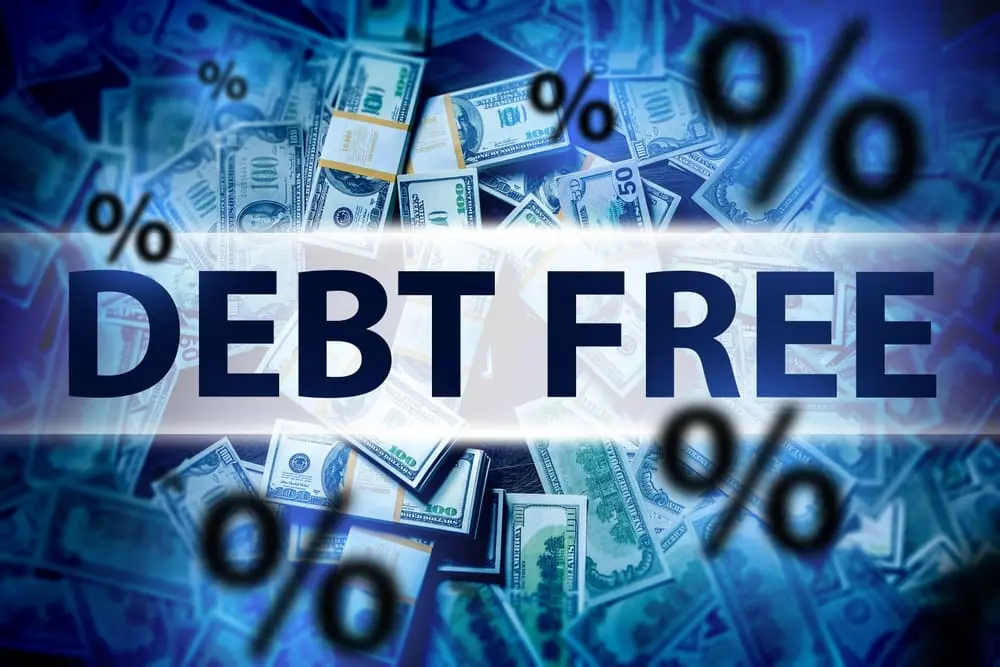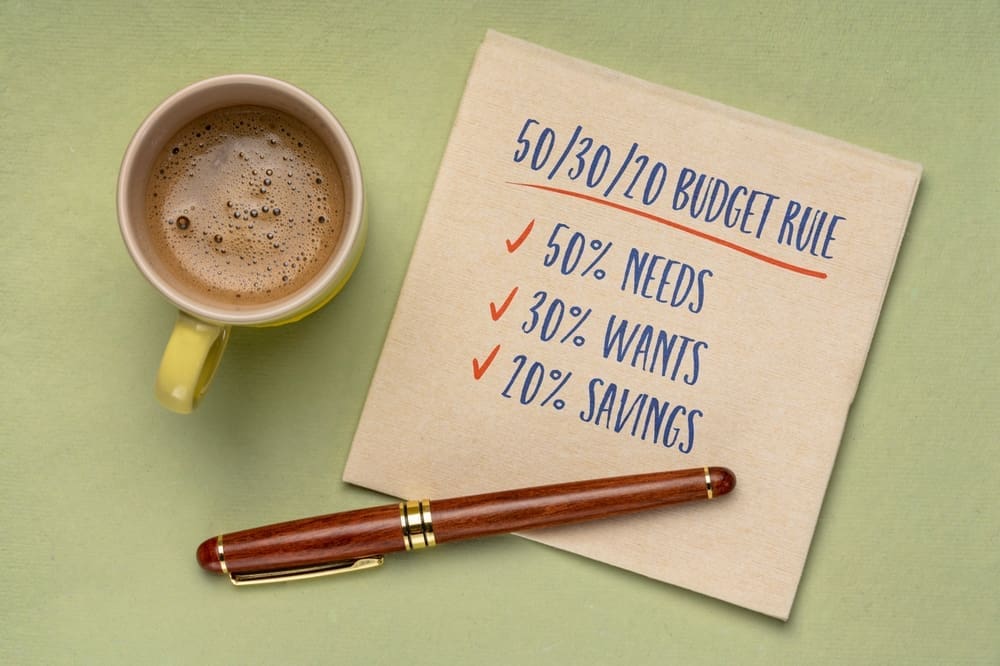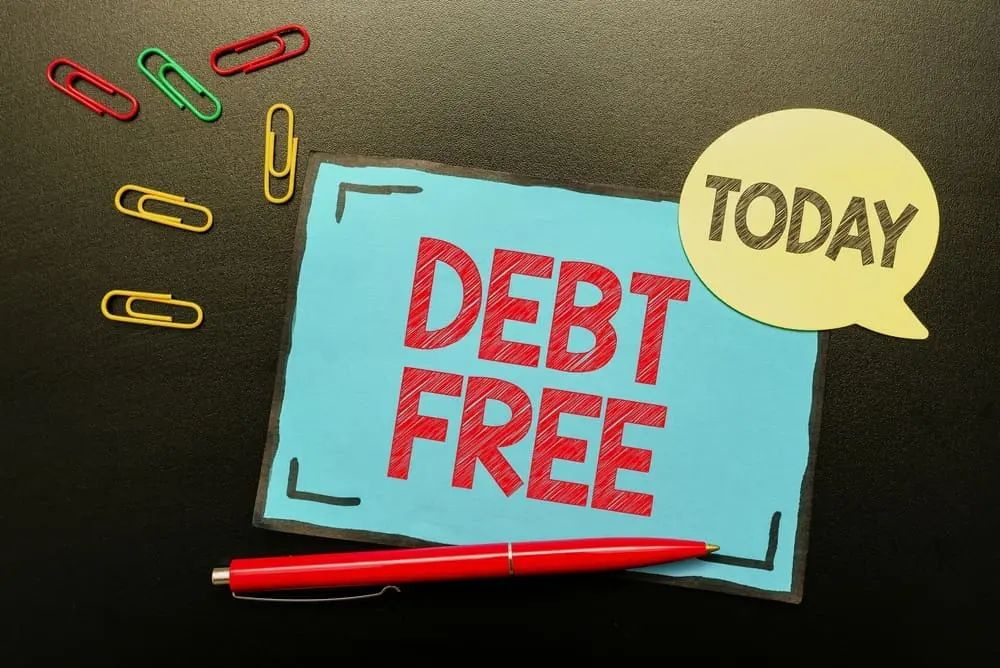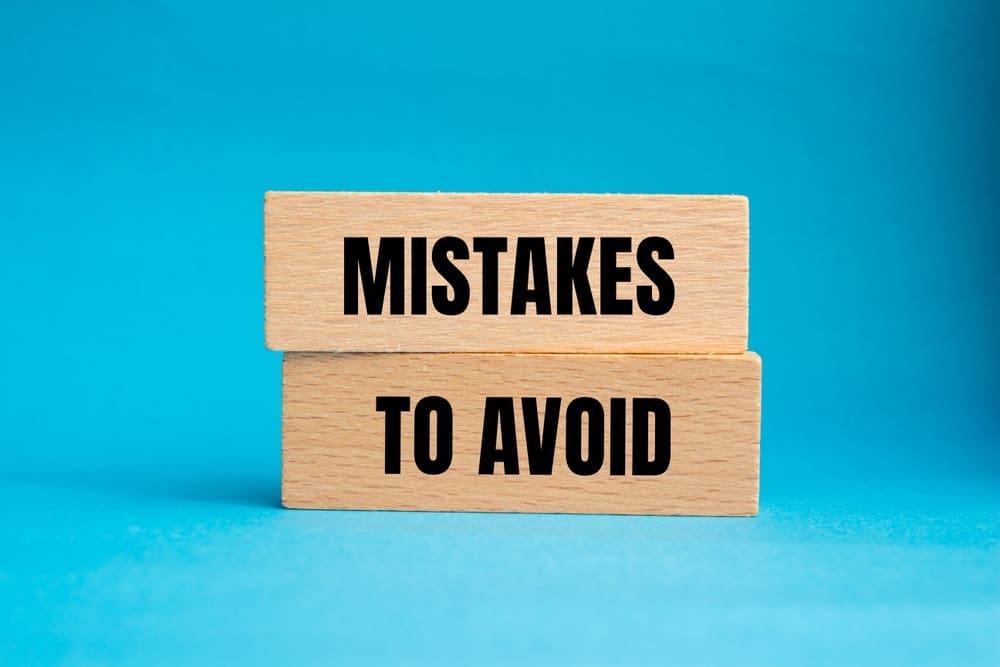Living Debt-Free – Real Stories of Millennials Who Accepted the Debt Challenge. Find Out More In Our Latest Article!
THIS ARTICLE MAY CONTAIN AFFILIATE LINKS, MEANING I GET A COMMISSION IF YOU DECIDE TO MAKE A PURCHASE THROUGH MY LINKS AT NO COST TO YOU. PLEASE READ MY AFFILIATE DISCLOSURE FOR MORE INFO.
DON’T HAVE TIME TO READ THE FULL ARTICLE. HERE’S WHAT YOU ARE MISSING.
- The Debt Challenge: A Millennial Movement
- Strategies for Success
- Side Hustles and Income Streams
- Overcoming Setbacks
- The Psychological Impact of Debt Freedom
- The Shift in Financial Mindset
- Building Wealth Post-Debt
- Community and Support
- Maintaining the Debt-Free Lifestyle
- Avoiding Common Pitfalls
- Sustaining Healthy Financial Habits
Debt is typical for many millennials, who face mounting student loans, credit card debt, and other financial obligations.
However, a growing movement of young adults is challenging the status quo by taking on the Debt Challenge. This movement is all about becoming debt-free and building a better financial future.
In this article, I will share real-life success stories of millennials who have taken the Debt Challenge and come out on top. These individuals have overcome significant financial obstacles and made wise choices to achieve their goals.
Through their testimonies, we can gain insights into the strategies for success, the psychological impact of debt freedom, and the community and support available to those who take on the Debt Challenge.
- The Debt Challenge is a movement focused on becoming debt-free and building a better financial future.
- Uncover practical tips and motivational insights to conquer debt and embrace a life of financial independence.
- Explore inspiring tales of debt triumph as millennials share their journey to financial freedom.
- Discover their debt-busting strategies, mindset shifts, and triumphs.
- Personal testimonies of those who have overcome debt can provide valuable insights into the psychological impact of debt freedom and strategies for building wealth after debt.
- Spark your debt-free journey and realize what’s possible with dedicated effort!
The Debt Challenge: A Millennial Movement

Defining the Debt-Free Lifestyle
Millennials know firsthand the struggles of managing debt. With student loans, credit card debt, and other financial obligations, it can be overwhelming to keep up with payments and make progress toward financial freedom.
That’s why the debt-free lifestyle has become a movement among millennials.
Living debt-free means having no outstanding debts, including credit card balances, student loans, and car payments.
The lifestyle requires discipline, sacrifice, and hard work, but the benefits are worth it.
By eliminating debt, millennials can save money, invest in their future, and achieve financial independence.
The Catalysts for Change
Several factors have fueled the debt-free movement among millennials.
First, the rising cost of education has left many millennials burdened with student loan debt. According to Forbes, the average student loan debt for the class of 2021 is $38,792. This debt can take years or even decades to pay off, making it difficult for millennials to achieve financial stability.
Second, the 2008 financial crisis left many millennials distrusting traditional financial institutions and wanting financial independence. This distrust, coupled with the rise of financial technology, has led to a surge in alternative financial services that cater to millennials.
Finally, the gig economy has made it easier for millennials to earn extra income and pay off debt. With platforms like Uber, Lyft, and Airbnb, millennials can earn money on their terms and use that money to pay off debt faster.
Overall, the debt-free lifestyle has become a movement among millennials tired of being burdened by debt.
By defining the debt-free lifestyle and recognizing the catalysts for change, we can continue to promote financial freedom and inspire others to join the movement.
Strategies for Success

As someone who has successfully tackled debt, I can attest that it is possible to become debt-free and love it.
Here are some strategies that have worked for me and other millennials who have taken the debt challenge.
Budgeting and Saving
Creating a budget is crucial when it comes to paying off debt. Start by tracking your expenses and income to identify areas where you can cut back. Consider using budgeting apps or spreadsheets to make the process easier. It’s also essential to save money for emergencies and unexpected expenses so you don’t have to rely on credit cards.
Debt Snowball vs. Debt Avalanche vs. Debt Meltdown
Three popular methods for paying off debt are the debt snowball, debt avalanche, and debt meltdown.
The debt snowball involves paying off the smallest debts first, while the debt avalanche involves paying off debts with the highest interest rates first.
The debt avalanche involves sorting debts from the highest to lowest interest rate and attacking the debt with the highest interest rate first while making minimum payments on the others.
The debt meltdown method is a powerful strategy to help individuals rapidly pay off their debts by combining the three core principles.
This method is an effective tool that enables individuals to get out of debt faster and more efficiently than traditional methods. Millennial Debt Demolition – Unleashing the Potential of the Debt Meltdown Method.
All three methods have pros and cons, so choose the best option for you and your financial situation.
Side Hustles and Income Streams

Increasing your income through side hustles or additional income streams can help you pay off debt faster. Consider freelancing, selling items online, or taking on a part-time job.
Use the extra income to pay down debt or build your emergency fund.
Implementing these strategies can help you become debt-free and enjoy financial freedom. It takes time and dedication, but it is worth the effort.
Personal Testimonies
As part of my research for this article, I spoke with several millennials who have successfully tackled their debt and are now living debt-free.
Their inspiring stories offer valuable insights for anyone looking to take control of their finances.
Student Loan Victories
One of the individuals I spoke with, Sarah, shared her story of paying off her $50,000 student loan debt in just five years. She accomplished this by living frugally, working multiple jobs, and aggressively paying her debt.
Sarah emphasized the importance of creating a budget, sticking to it, and finding ways to increase your income through side hustles or additional work.
Credit Card Triumphs
Another individual, John, shared his experience paying off over $20,000 in credit card debt. He admitted that he initially got into debt due to overspending and living beyond his means. However, John was able to turn his financial situation around by creating a debt repayment plan, negotiating with his creditors, and cutting back on unnecessary expenses.
He also emphasized the importance of seeking support from friends and family during debt repayment.
Mortgage Freedom Stories
Lastly, I spoke with Rachel, who shared her story of paying off her mortgage in 10 years. Rachel and her husband decided to live in a smaller home and prioritize their debt repayment goals. They also made extra mortgage payments whenever possible to avoid additional debt.
Rachel emphasized the importance of setting clear financial goals and staying committed to them, even if it meant making short-term sacrifices.
These personal testimonies demonstrate that debt-free living is possible with hard work, dedication, and a solid plan. By following these individuals’ examples and implementing their strategies, anyone can take control of their finances and achieve their debt-free goals.
Overcoming Setbacks

Navigating Financial Emergencies
I never expected to face a financial emergency, but life is unpredictable. When my car broke down, I didn’t have enough money in my emergency fund to cover the repairs. I felt overwhelmed and didn’t know what to do. However, I took a deep breath and reminded myself I had a plan for these situations.
First, I reviewed my budget to determine where to cut expenses. I canceled unneeded subscription services and stopped eating out. Then, I researched options for car repairs and found a mechanic who offered a payment plan. I also contacted family and friends for support.
It wasn’t easy, but I navigated the financial emergency without going into debt. It taught me the importance of having an emergency fund and being resourceful in challenging situations.
Dealing with Unexpected Job Loss
Losing my job was challenging, but it didn’t have to be a financial disaster. I immediately filed for unemployment benefits and started looking for new job opportunities. I contacted my creditors, explained my situation, and requested a temporary payment plan.
To make ends meet, I cut back on expenses and found ways to earn extra income. I sold items I no longer needed, took on freelance work, and even started a small side business. It was challenging, but I could stay afloat until I found a new job.
Although experiencing an unexpected job loss was a setback, it taught me the importance of having a solid support system and being proactive in finding solutions.
The Psychological Impact of Debt Freedom

Mental Health Benefits
As someone who has experienced the stress and anxiety of being in debt, I can attest to the mental health benefits of becoming debt-free. The weight of debt can be overwhelming, causing hopelessness and despair.
However, once you take control of your finances and pay off your debts, a sense of relief and freedom can positively impact your mental well-being.
Studies have shown that debt can be a significant source of stress, leading to depression, anxiety, and other mental health issues.
Eliminating the debt burden can reduce stress and improve overall quality of life. You may also sleep better, have more energy, and feel more optimistic about your future.
The Shift in Financial Mindset

Becoming debt-free also requires a shift in financial mindset. When you are in debt, you may feel like you are constantly living paycheck to paycheck, struggling to make ends meet.
However, once you pay off your debts, you can focus on building wealth and achieving your financial goals.
This shift in mindset can lead to increased confidence and a sense of empowerment. You may feel more in control of your finances and less vulnerable to financial emergencies.
This can also lead to better money-making decisions, as you are no longer making decisions based on the need to pay off debt.
Becoming debt-free can significantly impact your mental health and overall well-being.
By eliminating the stress and anxiety of debt and shifting your financial mindset, you can experience a sense of freedom and empowerment that can improve your quality of life.
Building Wealth Post-Debt

Investing After Debt
When you become debt-free, you have more money available to invest. Investing is a great way to build wealth over time, but it can be overwhelming to know where to start. I began by researching and consulting with a financial advisor to determine my risk tolerance and investment goals.
I decided to diversify my portfolio by investing in stocks and bonds. I also monitor my investments closely and adjust as needed to ensure I am on track to meet my goals.
It’s important to remember that investing comes with risks, and returns are not guaranteed. However, with careful planning and a long-term perspective, investing can be a great way to build wealth and achieve financial freedom.
Retirement Planning
Retirement may seem far off, but there is always time to start planning. I began by estimating how much I would need to save for retirement based on my expected expenses and income. I also took advantage of my employer’s retirement plan, contributing as much as I could afford each month.
In addition to my employer’s plan, I opened an individual retirement account (IRA) to supplement my savings. I chose a Roth IRA because I expect to be in a higher tax bracket in retirement and want to avoid paying taxes on my withdrawals.
Retirement planning can be complex, but starting early and seeking professional advice is essential. By planning and saving for retirement, I am confident I can enjoy my golden years without financial stress.
Community and Support

As I researched and spoke with millennials who successfully tackled their debt, one recurring theme was the importance of community and support. Here are some ways they found support and encouragement along the way:
Online Forums and Groups
Joining online forums and groups can be a great way to connect with others who are also working on becoming debt-free. These communities can provide a wealth of information and resources and a space to ask questions and share your experiences.
Some popular online forums and groups for debt-free millennials include:
- r/PersonalFinance
- Dave Ramsey’s Baby Steps Community
- The Debt-Free Community on Facebook
- NextGen Money Skills
Local Meetups and Workshops
Meeting with others face-to-face can also be beneficial when working on debt. Local meetups and workshops provide a supportive environment where you can connect with others, share tips and strategies, and hold each other accountable.
Here are some options to consider:
- Meetup.com: Search for debt-free or personal finance groups in your area
- Financial Peace University: Dave Ramsey’s nine-week course on personal finance and debt reduction
- Local community centers or libraries: Check for free workshops or classes on personal finance and budgeting
Blogs for Mastering Money Skills
Online blogs like NextGen Money Skills focus on mastering money skills and financial planning, helping the younger generation establish a robust financial foundation early in life.
No matter which option you choose, finding a community of like-minded individuals can help you stay motivated and on track with your debt-free journey.
Maintaining the Debt-Free Lifestyle

As someone who has successfully paid off debt, I know firsthand that the journey to financial freedom is difficult. However, the real challenge comes after becoming debt-free. Maintaining healthy financial habits is essential to avoiding falling back into debt.
Here are some tips on how to maintain a debt-free lifestyle.
Avoiding Common Pitfalls

One of the biggest mistakes people make after becoming debt-free is overspending. It’s easy to fall back into old habits and start spending money on things you don’t need.
To avoid this, I recommend creating a budget and sticking to it. Make sure to allocate money for your bills, savings, and discretionary spending.
Tracking your expenses is essential to ensure you’re not overspending.
Another common pitfall is taking on new debt. It’s essential to resist the temptation to take on new debt, even for something you want.
If you must take on debt, make sure it’s something you can afford and have a plan to pay it off.
Sustaining Healthy Financial Habits

Maintaining a debt-free lifestyle is essential to sustain healthy financial habits.
This includes saving money, investing, and living below your means.
Start by creating an emergency fund that you can use in case of unexpected expenses.
Consider investing your money in stocks, bonds, or real estate to help grow your wealth.
Living below your means is also important. This means spending less than you earn and avoiding unnecessary expenses.
Consider cutting back on things like eating out or buying new clothes.
Instead, focus on living a stress-free lifestyle while saving money.
Maintaining a debt-free lifestyle requires discipline and commitment. By avoiding common pitfalls and sustaining healthy financial habits, you can stay debt-free for the long term.
Disclaimer: Millennial Credit Advisers is not a licensed credit service provider or financial advisor. We don’t offer credit repair, debt management, or legal services. Educate yourself on saving, reducing debt, and managing credit for economic improvement. Understand credit reports, scores, and financial products. Consult a financial advisor for personalized advice. Track your progress for a better credit journey.
Written content: Please view our full AI Use Disclosure.
We improve our products and advertising by using Microsoft Clarity to see how you use our website. By using our site, you agree that we and Microsoft can collect and use this data. Our privacy policy has more details.
















